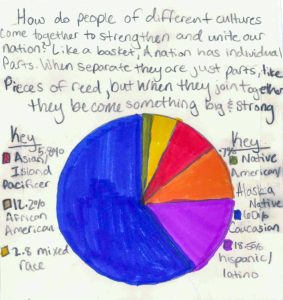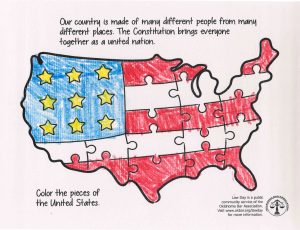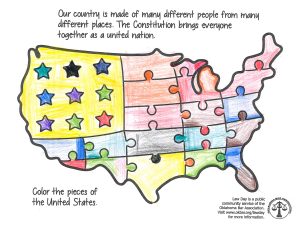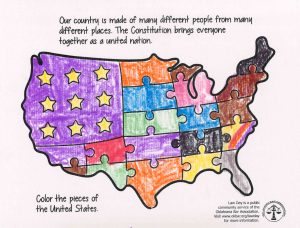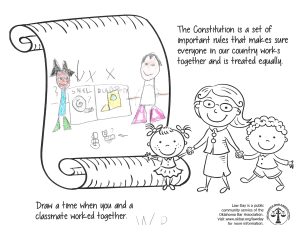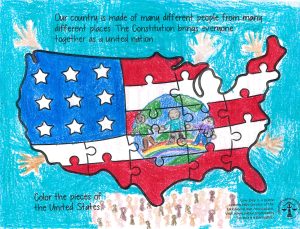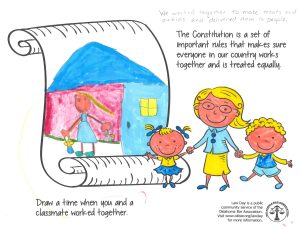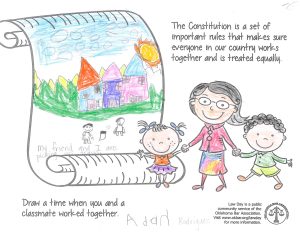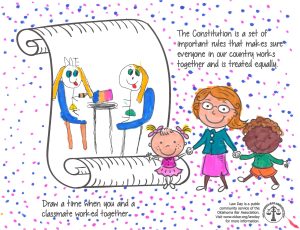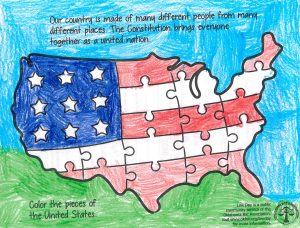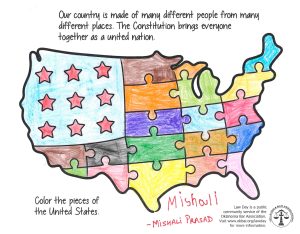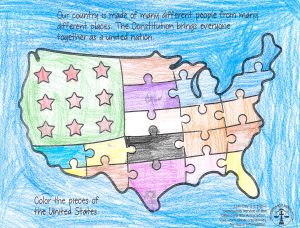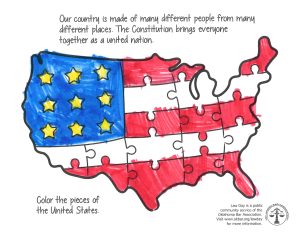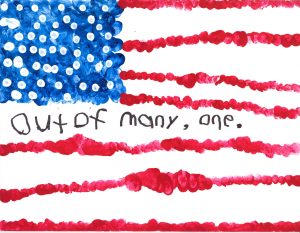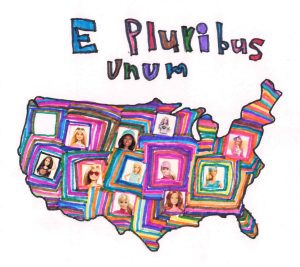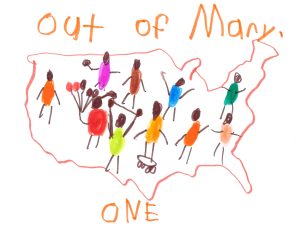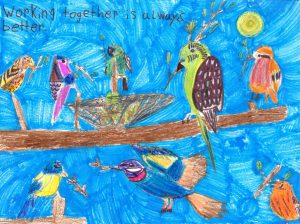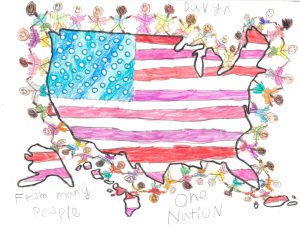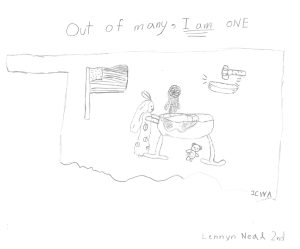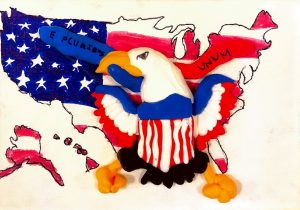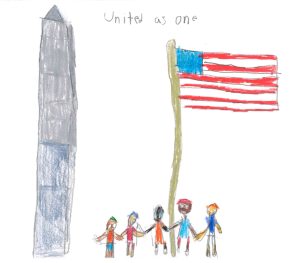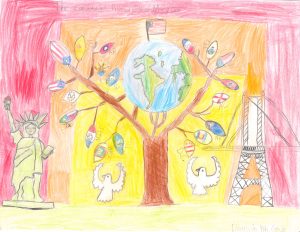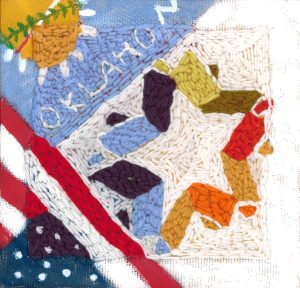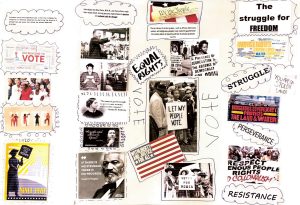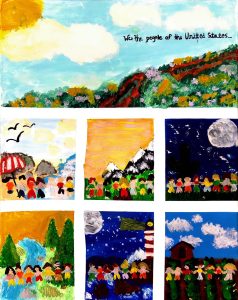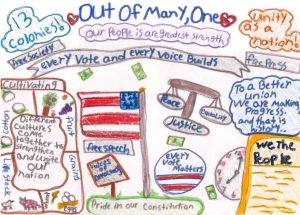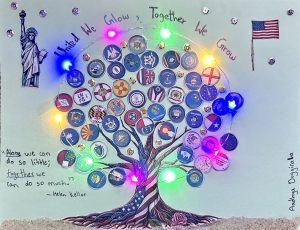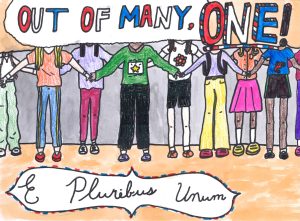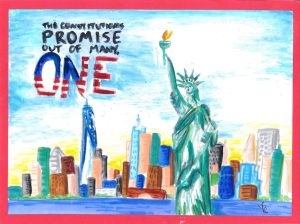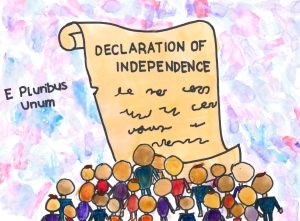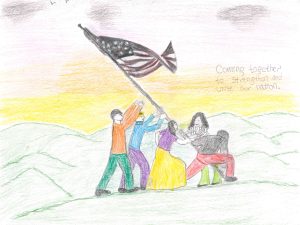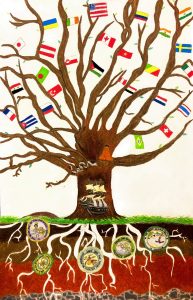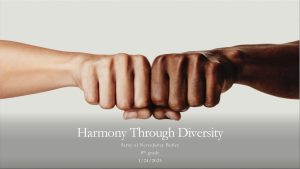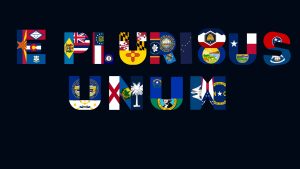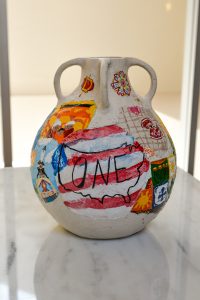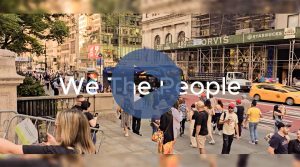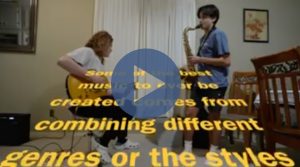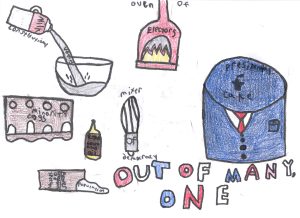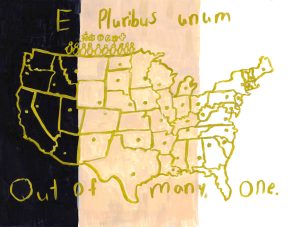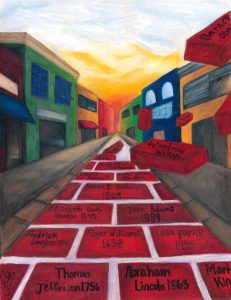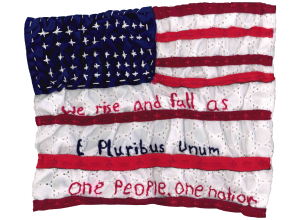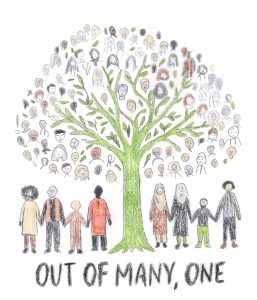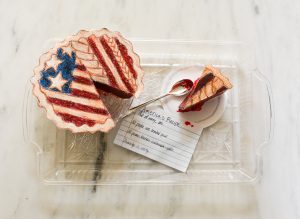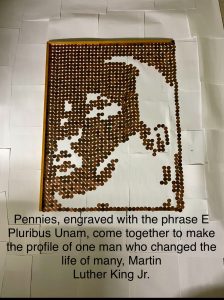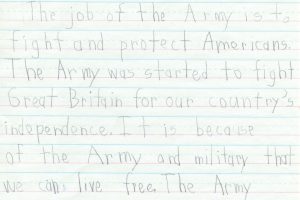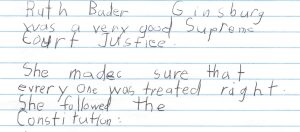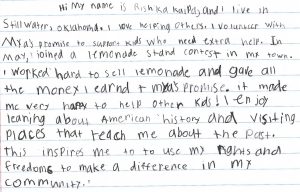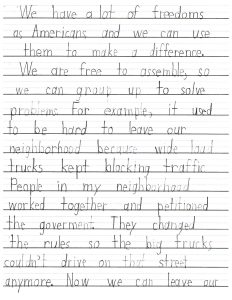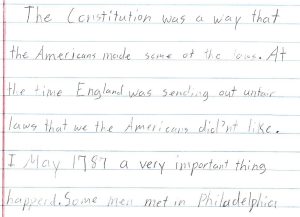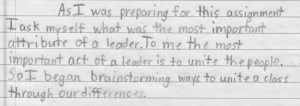First Place
Ledesli Armendariz, Pauls Valley
Mosaic of Voices
Bipartisanship is the way we the People of the United States of America will succeed in unification. Politicians must uphold their duties as being the voice for citizens by cooperating with opposing parties and agendas to ensure democracy is sustained in the Constitution because only then is civic participation impactful. Without bipartisanship, those who engage in politics and use their First Amendment right to voice their opinion may feel unheard and alienated. Although the rise of polarization is increasing every day, there is still hope for change in our government and we must uphold our constitutional promise: liberty, justice, equality, democracy, and security. It is essential that we engage and become the source of change that our country needs to see in order to thrive; we are the source of power.
Read the full essay
First Place
Raquel Todd, Vici
Decades Through a Screen
The National Archives are buzzing with activity; the echo of footsteps from school children – including mine – scatter across the building, learning about American history. My friends are up ahead chatting about the historical document they just saw, but my attention is drawn elsewhere.
Above the noise of the crowded room, my eyes land on a huge touchscreen tucked away in the corner of the room. The piece of technology shows a street corner, frozen in time. The strange part is, there is no one standing in front of it.
Read the full essay
Second Place
Payne Davis, Cache
January 14, 2086
Something happened today, and I can not stop thinking about it. I was walking through town, and I saw a man sitting by himself outside the old community center. He had a sign reading, "Will work for food." His eyes looked tired like he had been carrying the weight of the world alone for too long. It hit me hard. This is not the world I want to live in. We have built all this incredible technology, surrounded ourselves with convenience, and somehow forgotten how to care for each other. The robots do everything: cook, clean, delivery but what about the things that really matter? What about kindness, connection, and helping those who need it most? I couldn't just walk by. I stopped and talked to him. His name was Robert, and he used to be a carpenter before losing his home. He told me how invisible he feels, like people do not even see him anymore. It kind of touched my heart in a way that it had never been touched before. How did we let the world get this bad?
Read the full essay
Honorable Mention
Rylee Morgan, Cache
“The Nature of a Country”
I have made a decision that changed everything. It has been a week since the announcement that Weldon Manufacturing, the town’s largest employer, shut down. The news hit our town like a freight train. Stores were empty, families were panicked, and the heart of our community stopped beating. Everywhere I looked, people were defeated, already given up on our town. Our town’s story could not be over yet. I am only one person, but I have always believed that small actions leas to big changes.
Read the full essay


